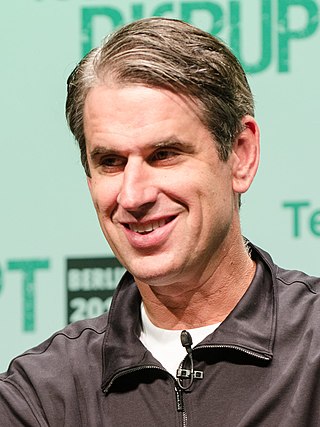
SoftBank Group Corp. is a Japanese multinational investment holding company headquartered in Minato, Tokyo which focuses on investment management. The group primarily invests in companies operating in technology that offer goods and services to customers in a multitude of markets and industries ranging from the internet to automation. With over $100 billion in capital at its onset, SoftBank’s Vision Fund is the world's largest technology-focused venture capital fund. Fund investors included sovereign wealth funds from countries in the Middle East.

Uber Technologies, Inc. provides ride-hailing services, food delivery, and freight transport. It is headquartered in San Francisco and operates in approximately 70 countries and 10,500 cities worldwide. The company has over 131 million monthly active users and 6 million active drivers and couriers worldwide and facilitates an average of 25 million trips per day. It has facilitated 42 billion trips since its inception in 2010 and is the largest ridesharing company in the United States.

Gary Fred Marcus is an American psychologist, cognitive scientist, and author, known for his research on the intersection of cognitive psychology, neuroscience, and artificial intelligence (AI).

John William Gurley is an American businessman. He is a general partner at Benchmark, a Silicon Valley venture capital firm in San Francisco, California. He is listed consistently on the Forbes Midas List and is considered one of technology’s top dealmakers.

Splunk Inc. is an American software company based in San Francisco, California, that produces software for searching, monitoring, and analyzing machine-generated data via a web-style interface.

Samuel Harris Altman is an American entrepreneur, investor, and programmer. He was the co-founder of Loopt and is the current CEO of OpenAI. He was the president of Y Combinator and was briefly the CEO of Reddit.

Figure Eight was a human-in-the-loop machine learning and artificial intelligence company based in San Francisco.

Unity Software Inc. is an American video game software development company based in San Francisco. It was founded in Denmark in 2004 as Over the Edge Entertainment and changed its name in 2007. Unity Technologies is best known for the development of Unity, a licensed game engine used to create video games and other applications.

Codecademy is an American online interactive platform that offers free coding classes in 12 different programming languages including Python, Java, Go, JavaScript, Ruby, SQL, C++, C#, and Swift, as well as markup languages HTML and CSS. The site also offers a paid "Pro" option that gives users access to personalized learning plans, quizzes, and realistic projects.
Google Cloud Platform (GCP), offered by Google, is a suite of cloud computing services that runs on the same infrastructure that Google uses internally for its end-user products, such as Google Search, Gmail, Google Drive, and YouTube. Alongside a set of management tools, it provides a series of modular cloud services including computing, data storage, data analytics and machine learning. Registration requires a credit card or bank account details.
A robotaxi, also known as robo-taxi, self-driving taxi or driverless taxi, is an autonomous car operated for a ridesharing company.
Mycroft is a free and open-source software virtual assistant that uses a natural language user interface. Its code was formerly copyleft, but is now under a permissive license. It is named after a fictional computer from 1966 science fiction novel The Moon Is a Harsh Mistress.

Argo AI was an autonomous driving technology company headquartered in Pittsburgh, Pennsylvania. The company was co-founded in 2016 by Bryan Salesky and Peter Rander, veterans of the Google and Uber automated driving programs. Argo AI was an independent company that built software, hardware, maps, and cloud-support infrastructure to power self-driving vehicles. Argo was mostly backed by Ford Motor Co. (2017) and the Volkswagen Group (2020).
Clarifai is an independent artificial intelligence company that specializes in computer vision, natural language processing, and audio recognition. One of the first deep learning platforms having been founded in 2013, Clarifai provides an AI platform for unstructured image, video, text, and audio data. Its platform supports the full AI lifecycle for data exploration, data labeling, model training, evaluation and inference around images, video, text, and audio data. Headquartered in Washington DC and with employees in the US, Canada, Argentina, Estonia and India Clarifai uses machine learning and deep neural networks to identify and analyze images, videos, text and audio automatically. Clarifai enables users to implement AI technology into their products via API, Mobile SDK, and/or on-premise solutions.
Drive.ai, a subsidiary of Apple Inc., is an American technology company headquartered in Mountain View, California that uses artificial intelligence to make self-driving systems for cars. It has demonstrated a vehicle driving autonomously with a safety driver only in the passenger seat. To date, the company has raised approximately $77 million in funding. Drive.ai's technology can be modified to turn a vehicle autonomous.
Deep technology or hard tech is a classification of organization, or more typically startup company, with the expressed objective of providing technology solutions based on substantial scientific or engineering challenges. They present challenges requiring lengthy research and development, and large capital investment before successful commercialization. Their primary risk is technical risk, while market risk is often significantly lower due to the clear potential value of the solution to society. The underlying scientific or engineering problems being solved by deep tech and hard tech companies generate valuable intellectual property and are hard to reproduce.










